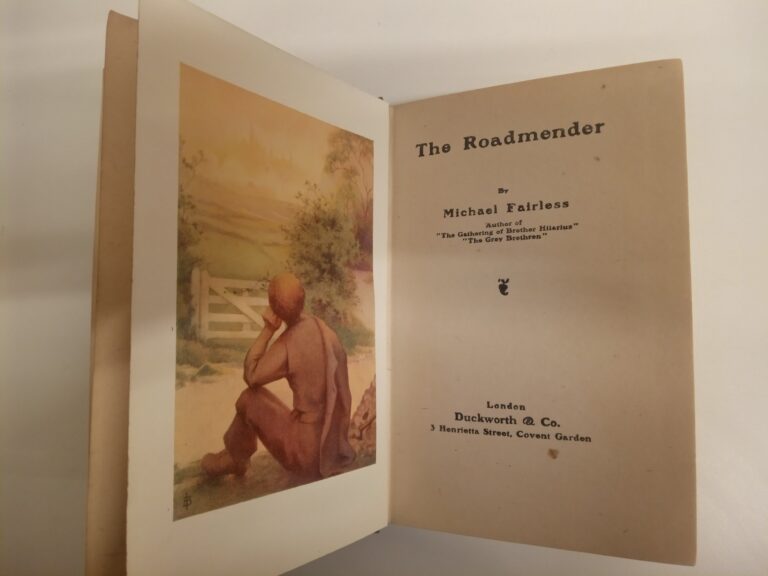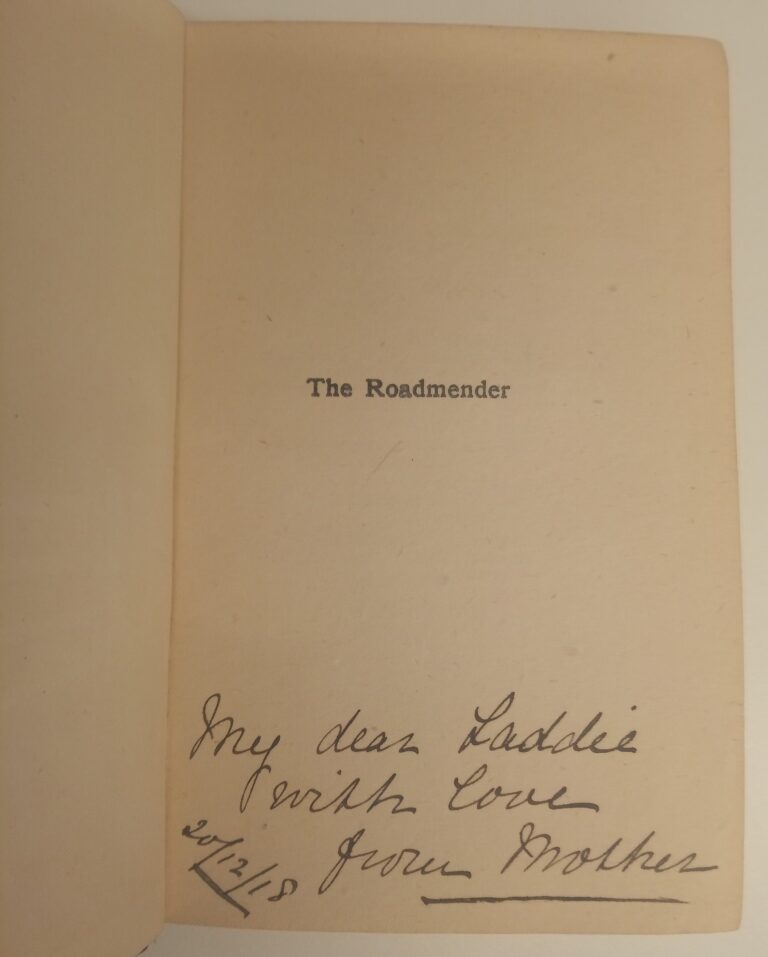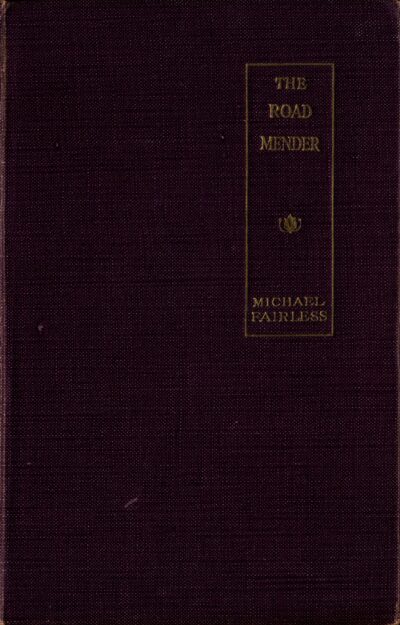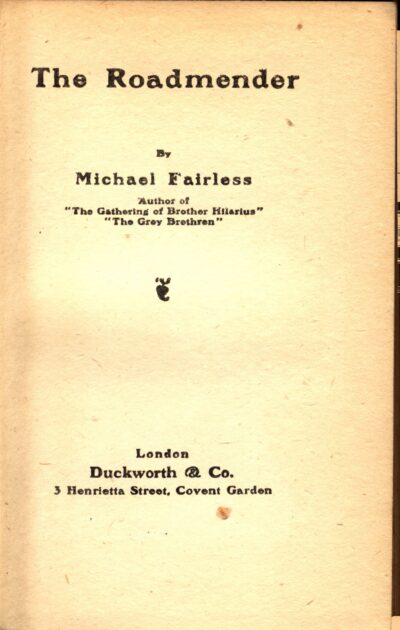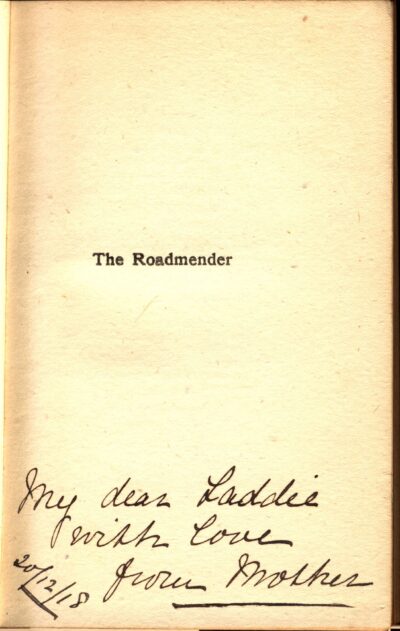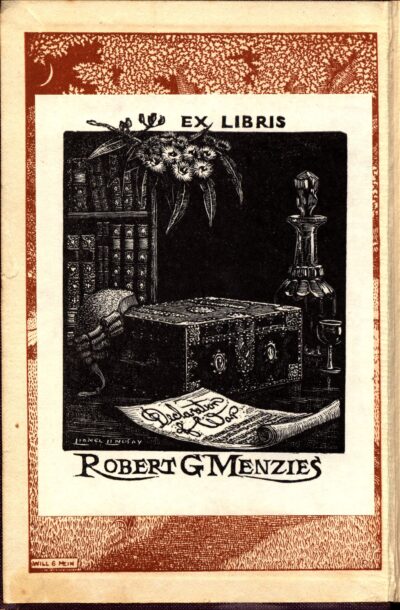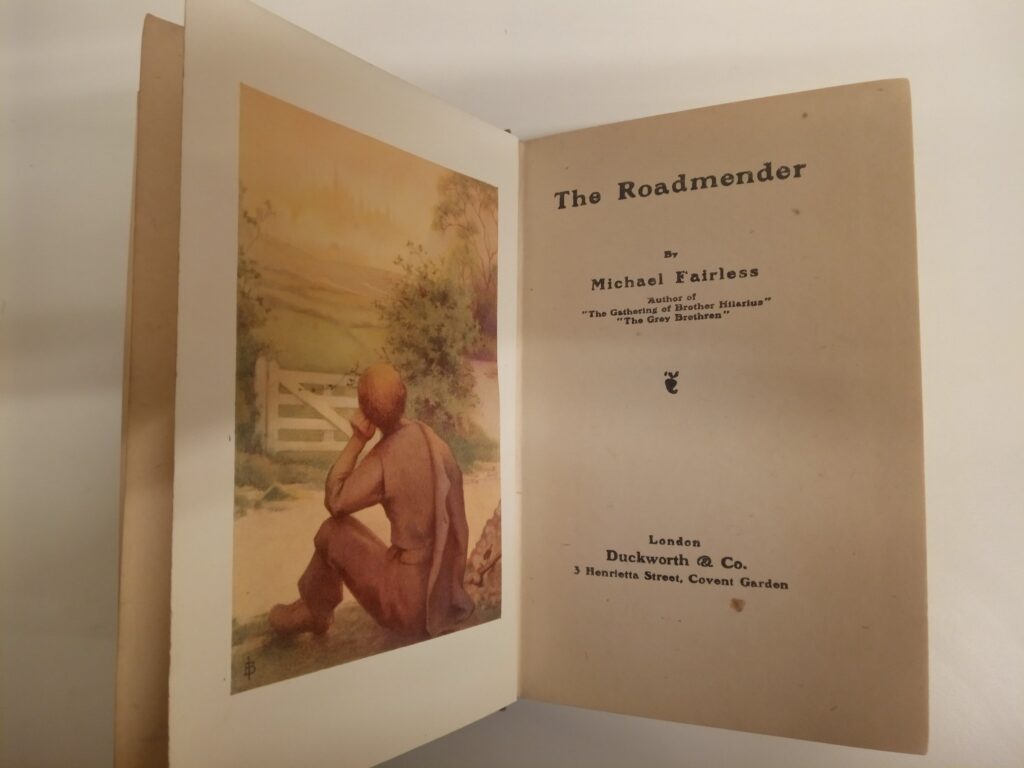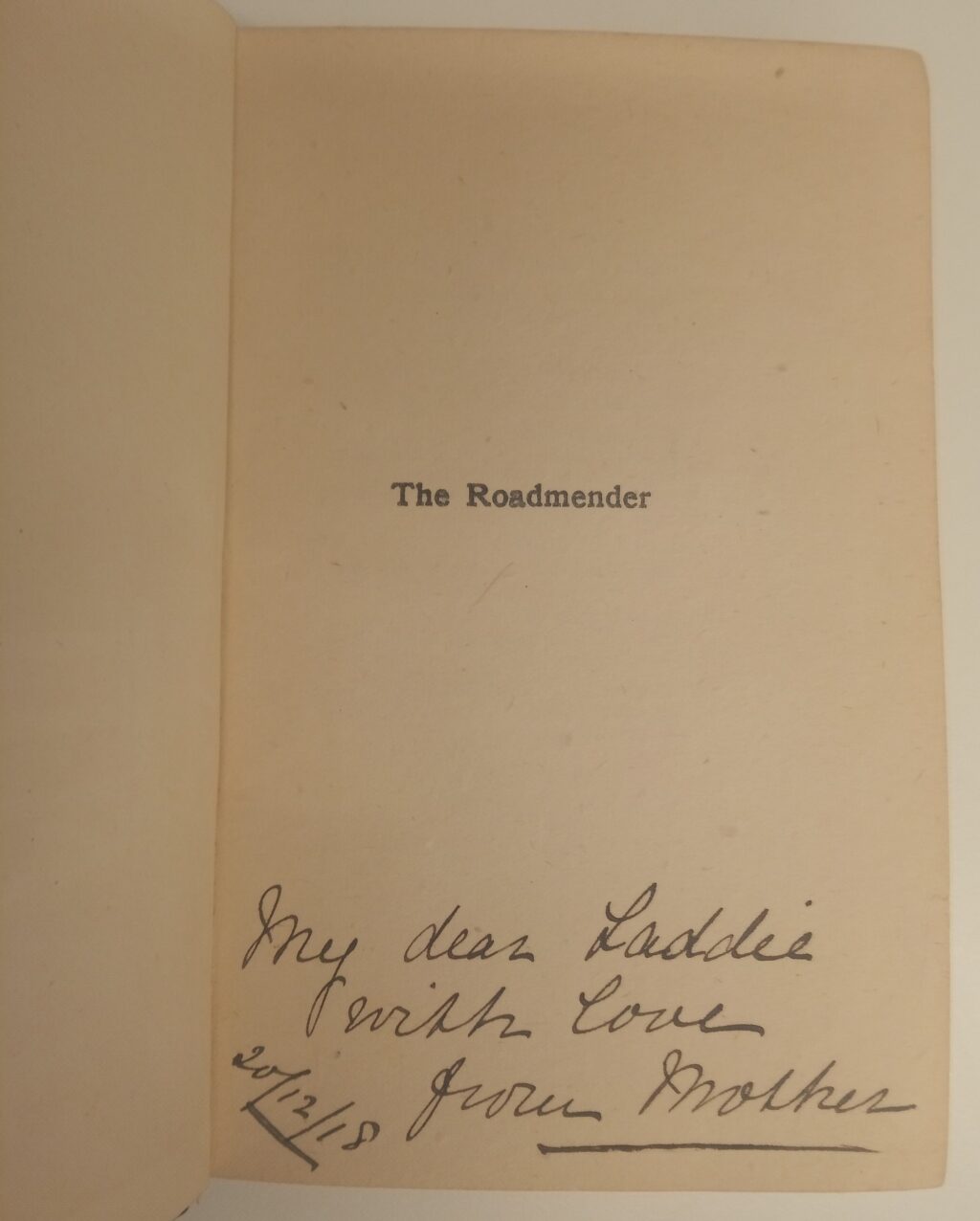Michael Fairless, The Roadmender (1918)
Margaret Barber was an English writer best known for Christian meditations she wrote under the pseudonym Michael Fairless.
Born in West Yorkshire to middle class parents in 1869, from an early age Barber fell in love with reading, finishing the complete works of Dickens and much of Scott before she was twelve. In 1881 her father, the solicitor and amateur archaeologist Fairless Barber, died, an event which so overwhelmed her mother that she shipped Margaret off to live with relatives in Torquay. Not much later, Margaret was diagnosed with a degenerative spinal condition which was to cast a shadow over the rest of her life.
A generous soul, Margaret trained to be a nurse at a children’s hospital and became involved in charity work helping those living in the slums of London’s East End, but her disease eventually overwhelmed her. With her mother having died in 1890, Margaret settled in the Thames-adjacent home of the wealthy family the Dowsons, who were great benefactors of the arts. Under their care she would live out the last years of her life taking solace in writing.
She based her pseudonym on the names of her father and childhood friend Michael McDonnell, who would later serve as chief justice of Palestine. As Michael Fairless she produced a number of works, fighting through the pain of her condition. When her right hand failed her, she changed to the left, and when growing weakness made writing altogether impossible, she dictated.
In this manner she produced a number of works, but by far the most popular was Roadmender written shortly before her death in 1901. A meditation on the road to heaven, it garnered such popularity that it was reprinted 31 times in ten years. It begins:
‘I have attained my ideal: I am a roadmender, some say stonebreaker. Both titles are correct, but the one is more pregnant than the other. All day I sit by the roadside on a stretch of grass under a high hedge of saplings and a tangle of traveller’s joy, woodbine, sweetbrier, and late roses. Opposite me is a white gate, seldom used, if one may judge from the trail of honeysuckle growing tranquilly along it: I know now that whenever and wherever I die my soul will pass out through this white gate; and then, thank God, I shall not have need to undo that trail.’
There follows heartfelt and melancholic tales of the people the protagonist meets travelling by; a widow, some tramps, a young girl, all making their way towards life’s end.
Menzies’s copy was a birthday gift from his mother Kate dated 20 December 1918, the day he turned 24. It has an inscription reading ‘My dear Laddie with love from Mother’ – a phrase which indicates that the Scottish influence from Menzies’s father had come to predominate even on the Cornish side of the family. The book is a touching artefact of Menzies’s close relationship with his mother, whom biographer Troy Bramston has described as a ‘calming’ personality with an appreciation of the lighter side of life. The gift of Roadmender suggests that she also had an appreciation of the deeper and more philosophical aspects of human existence, and that she hoped to connect with her son over their shared Christian faith.
You might also like...
Sign up to our newsletter
Sign up for our monthly newsletter to hear the latest news and receive information about upcoming events.

